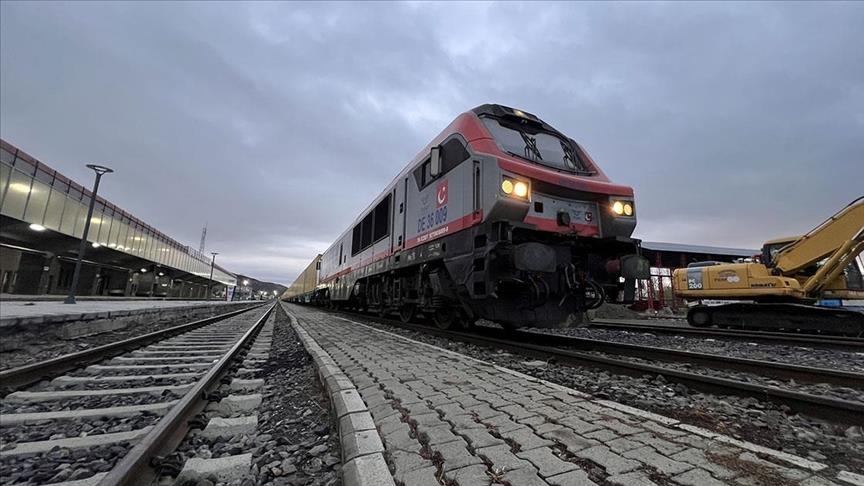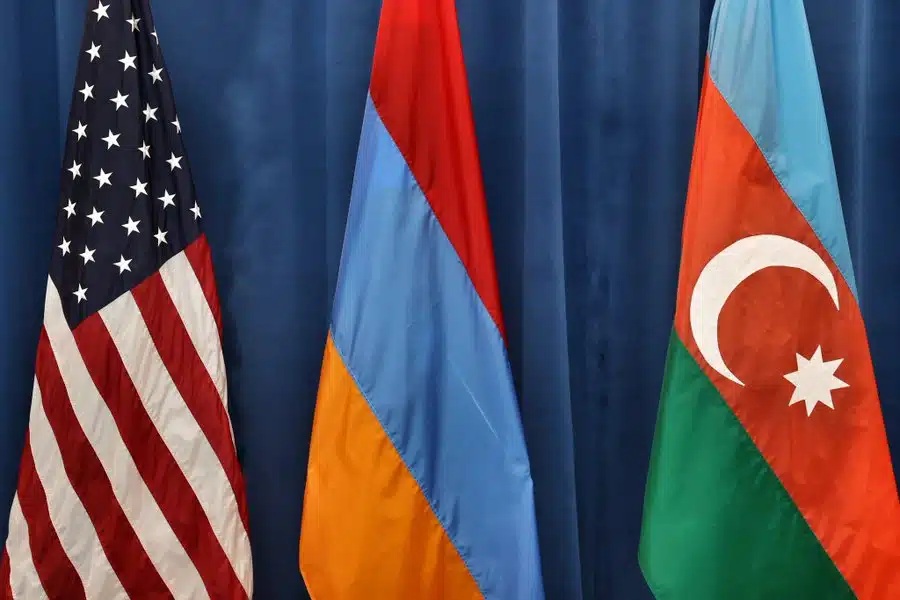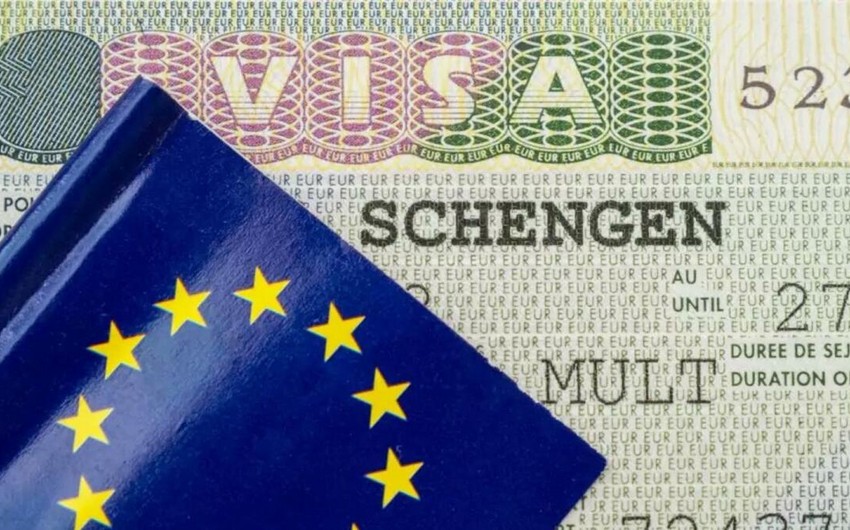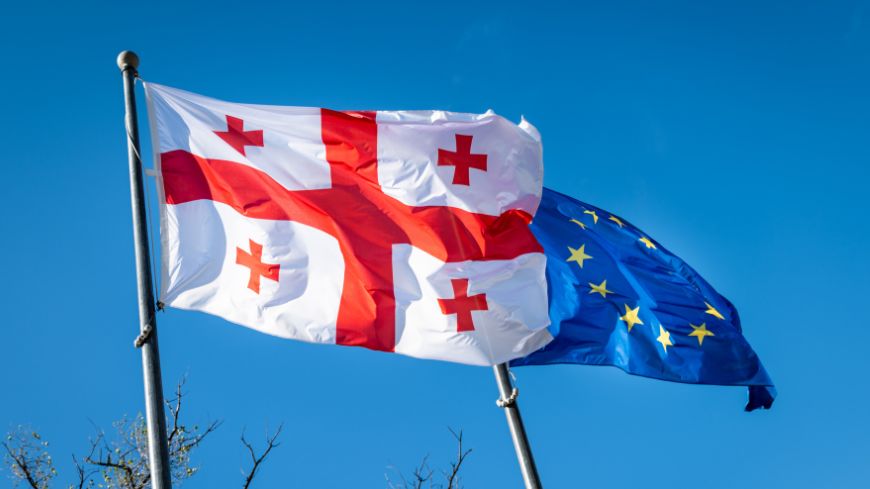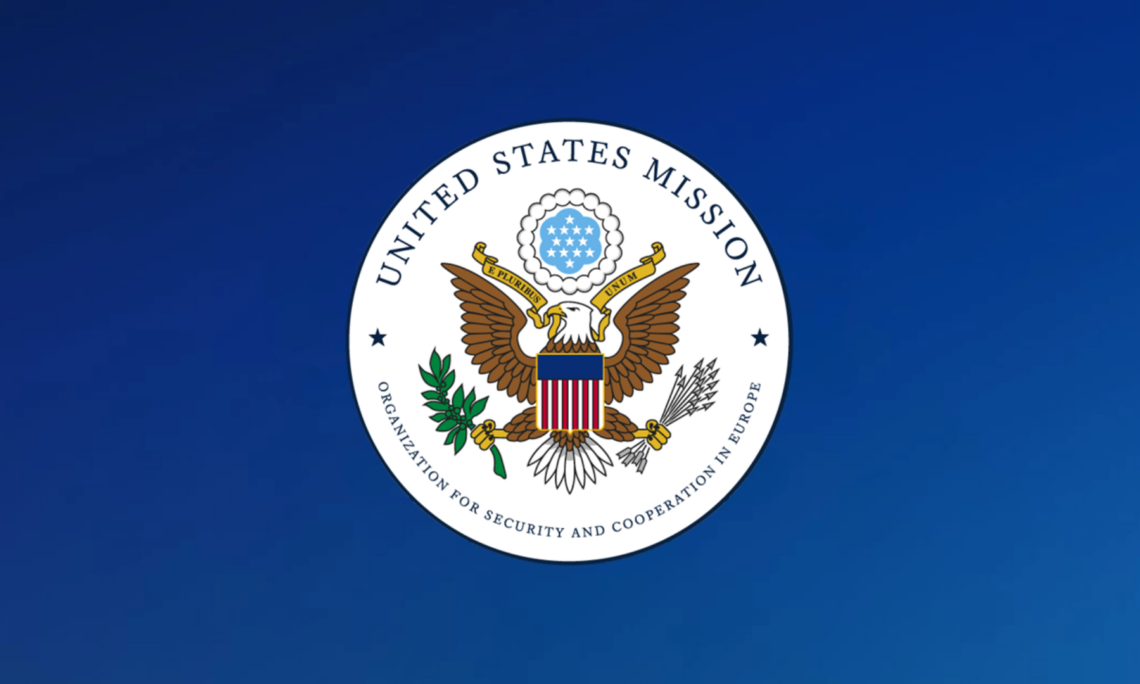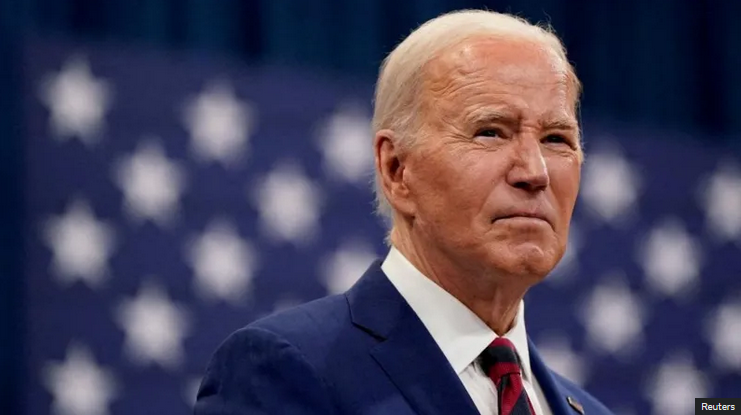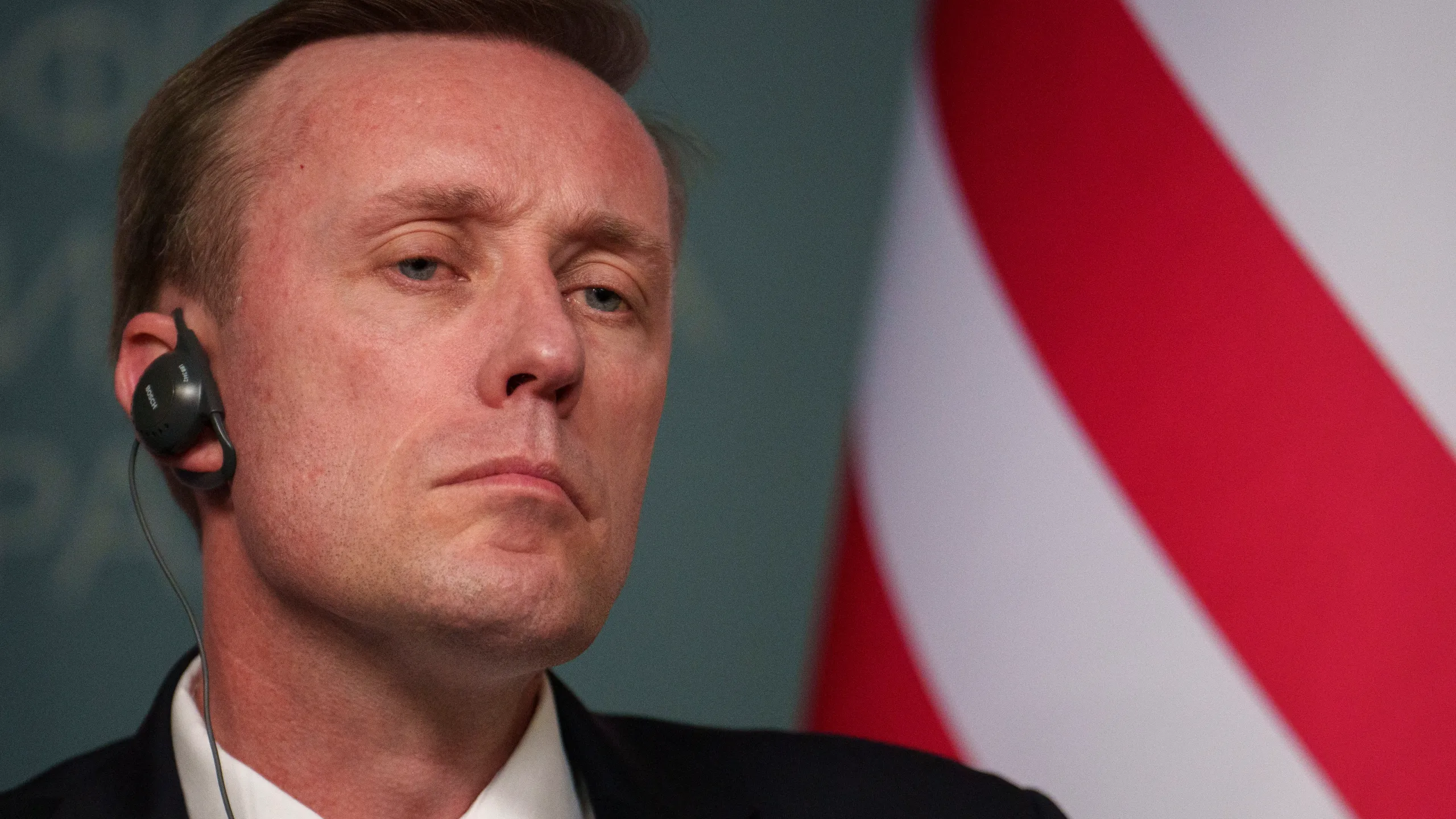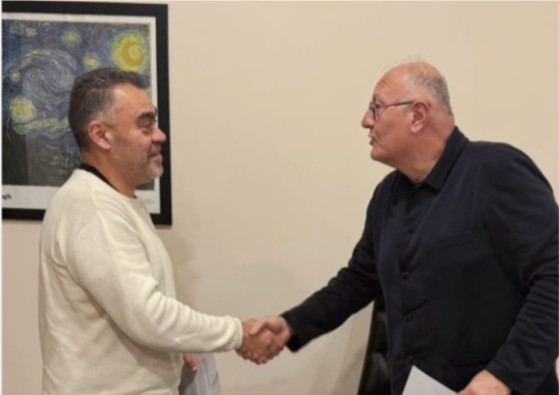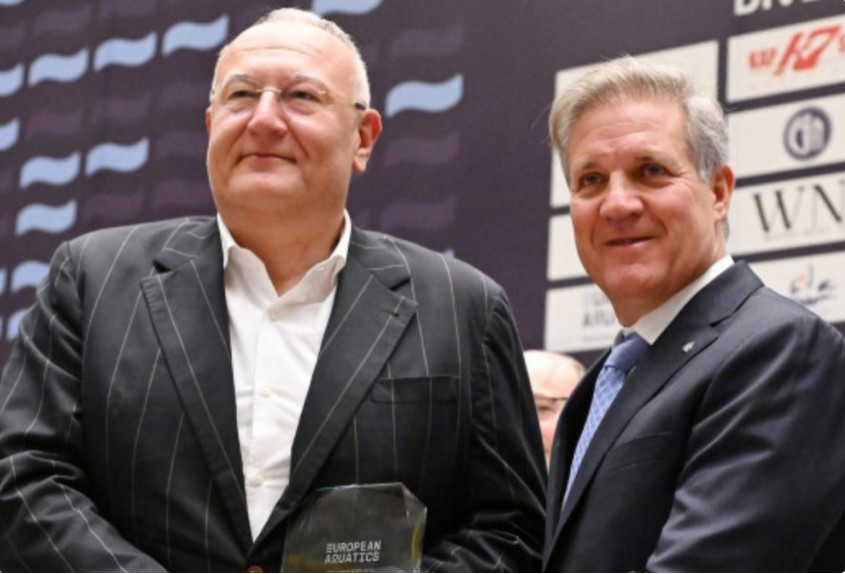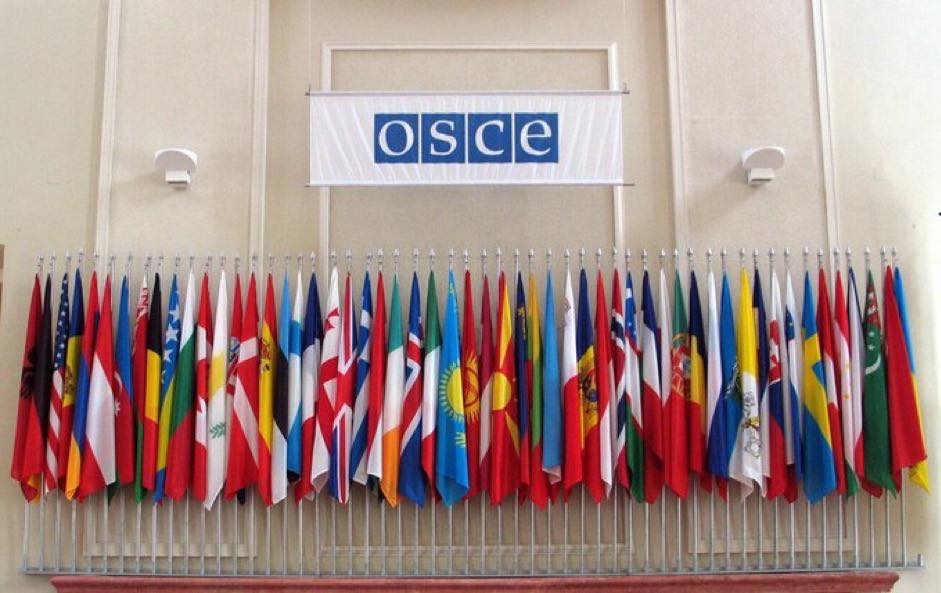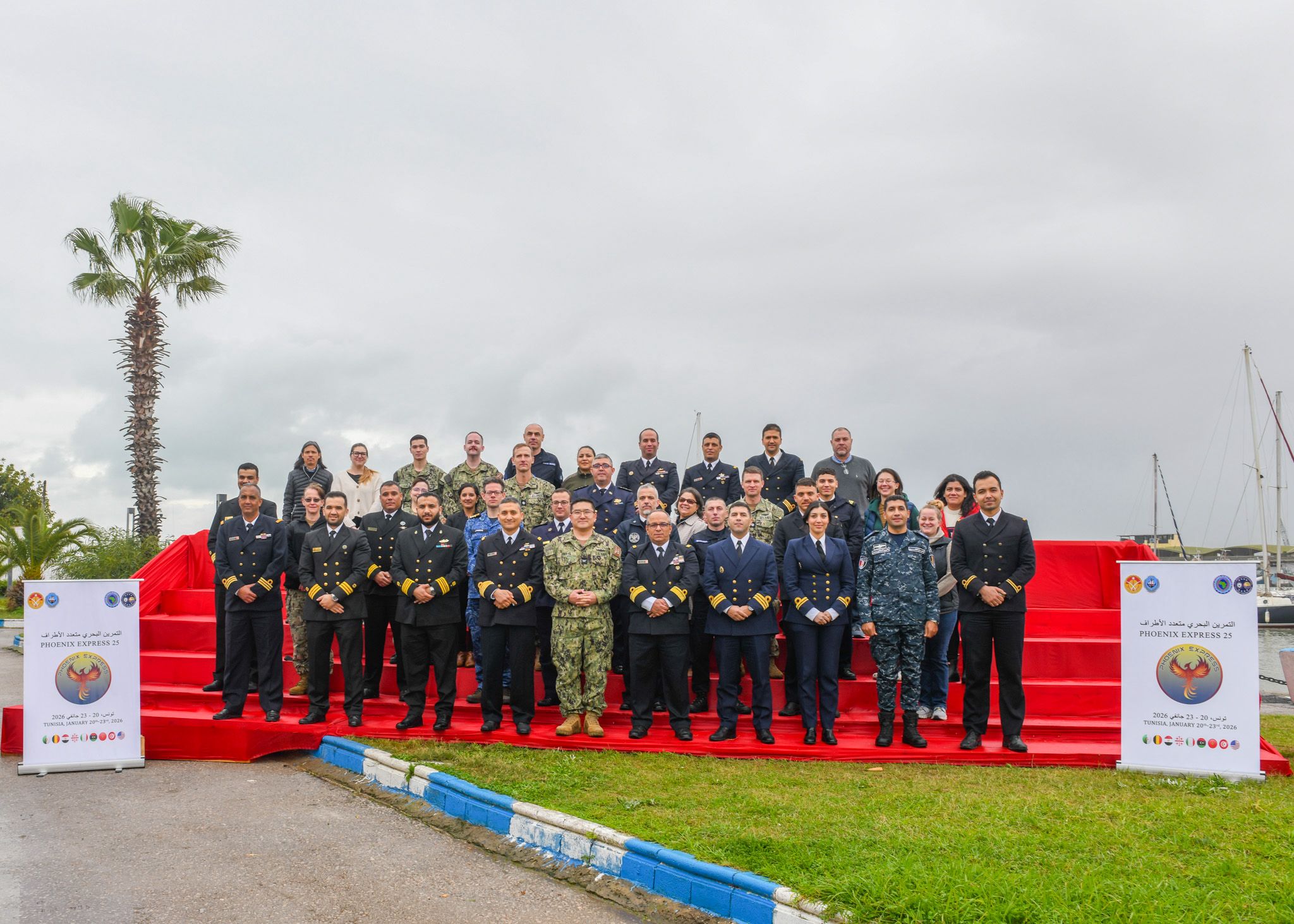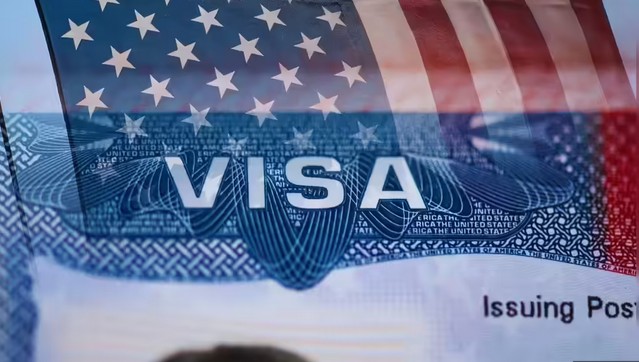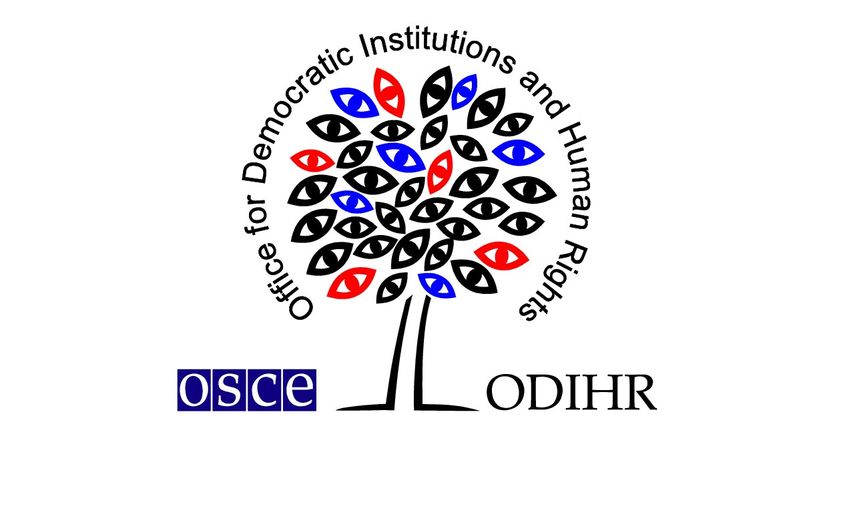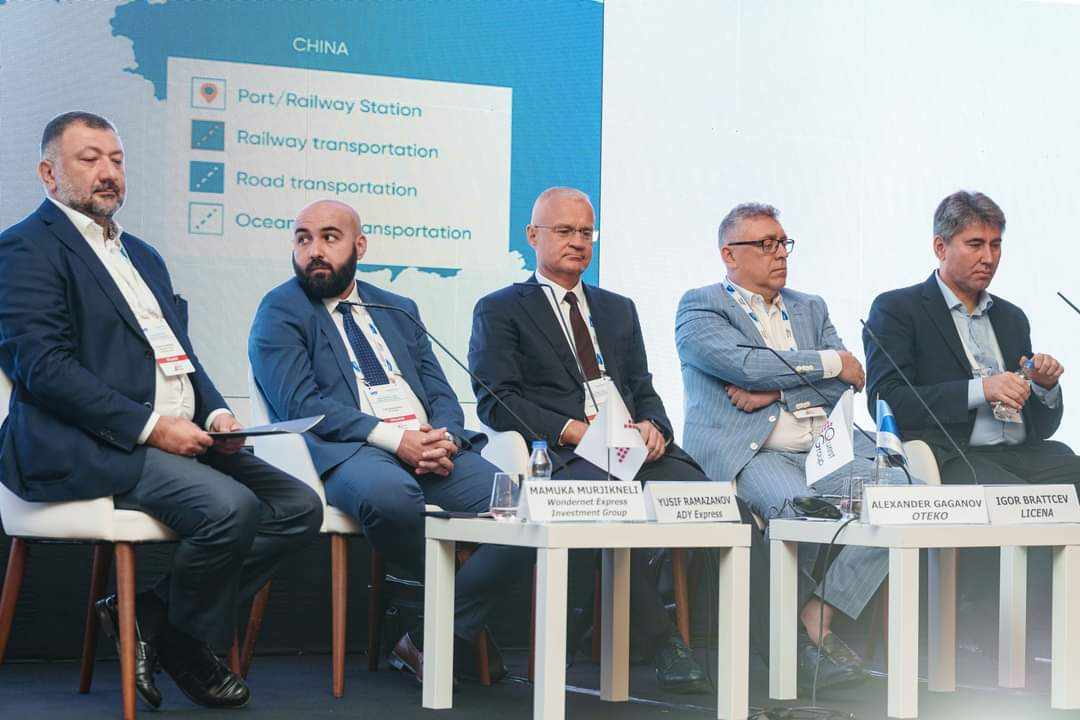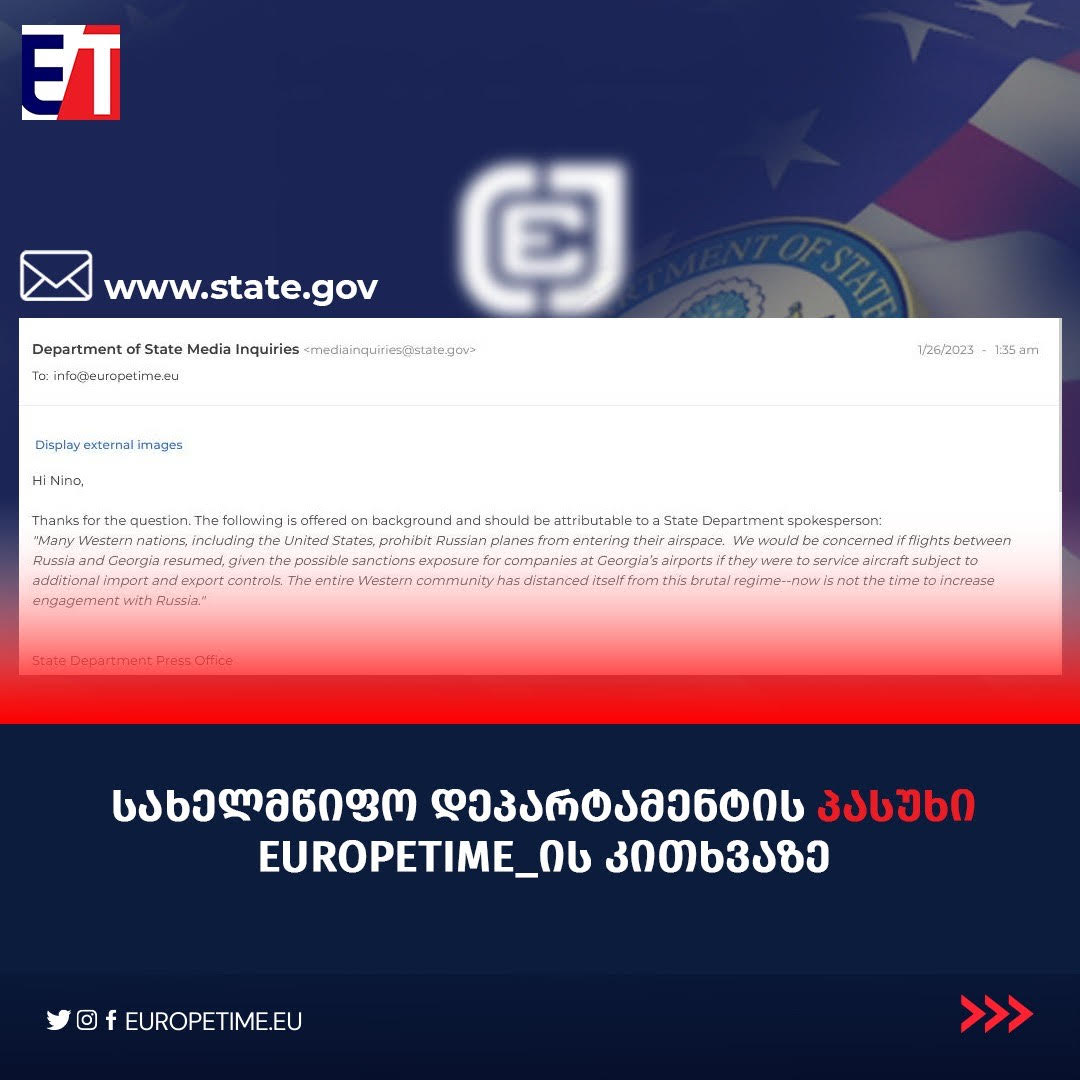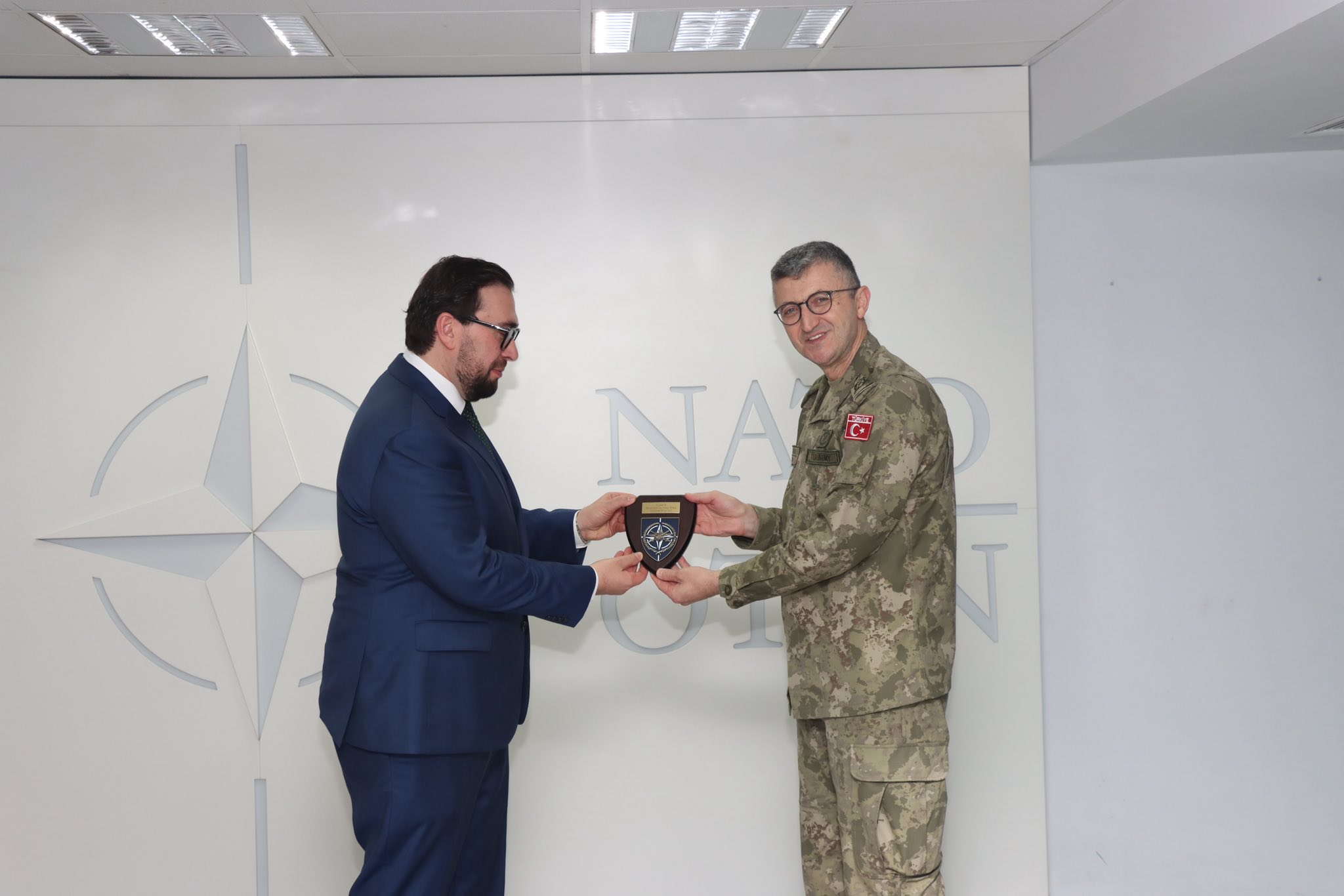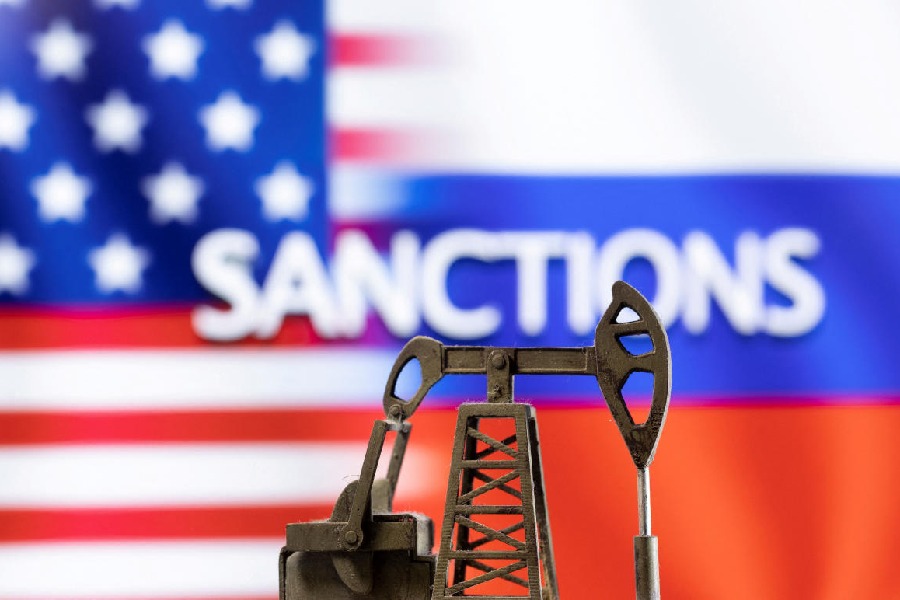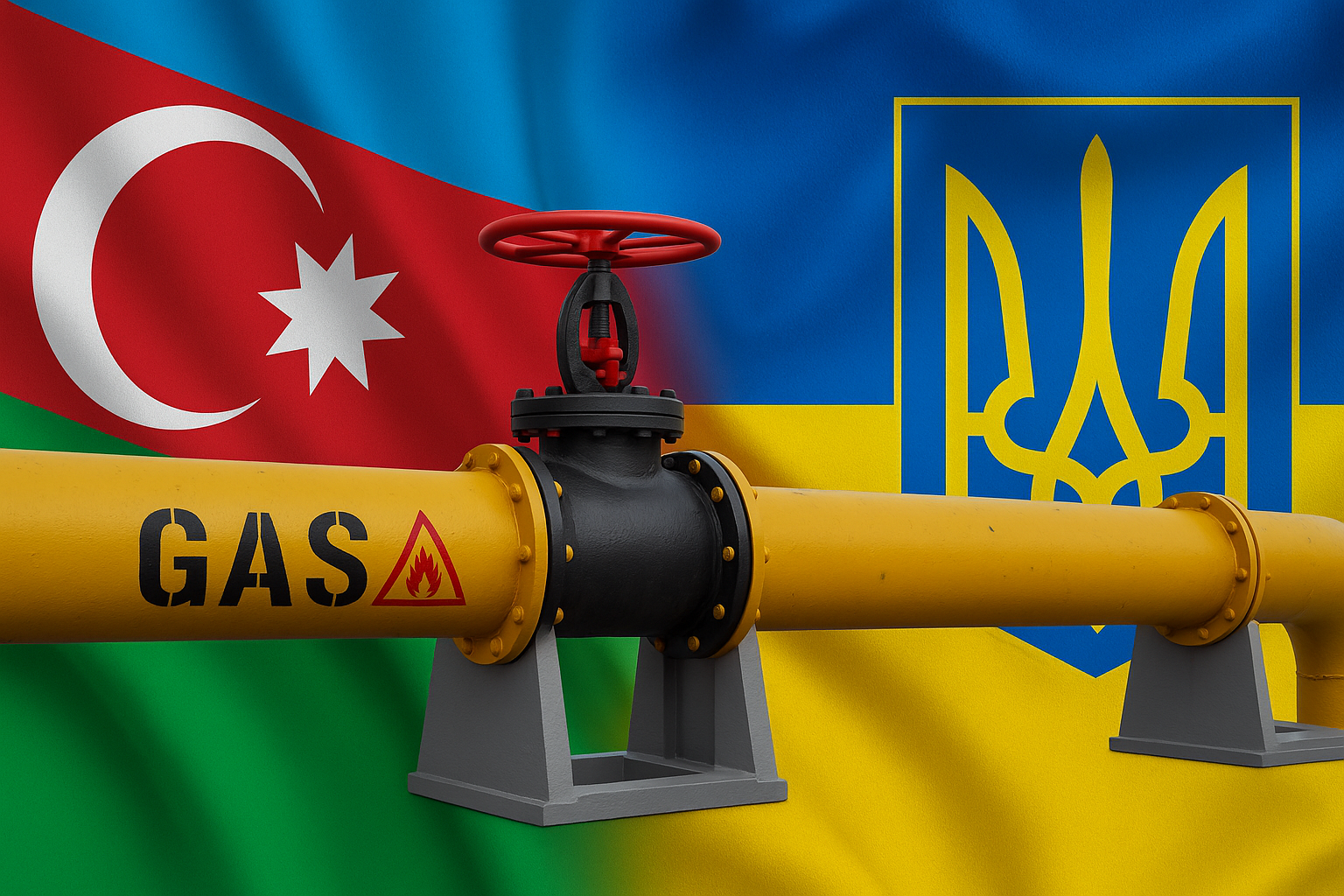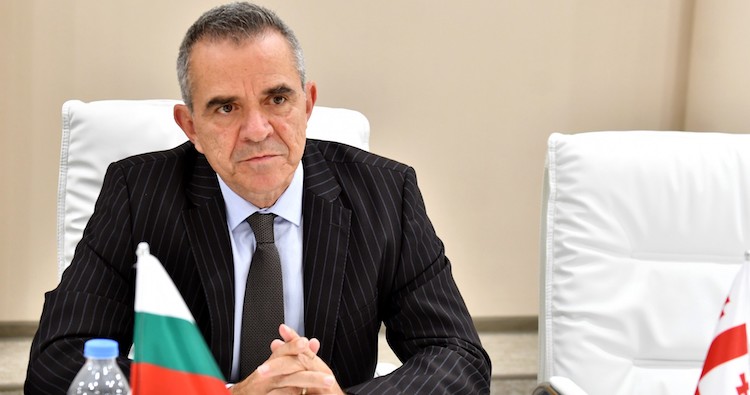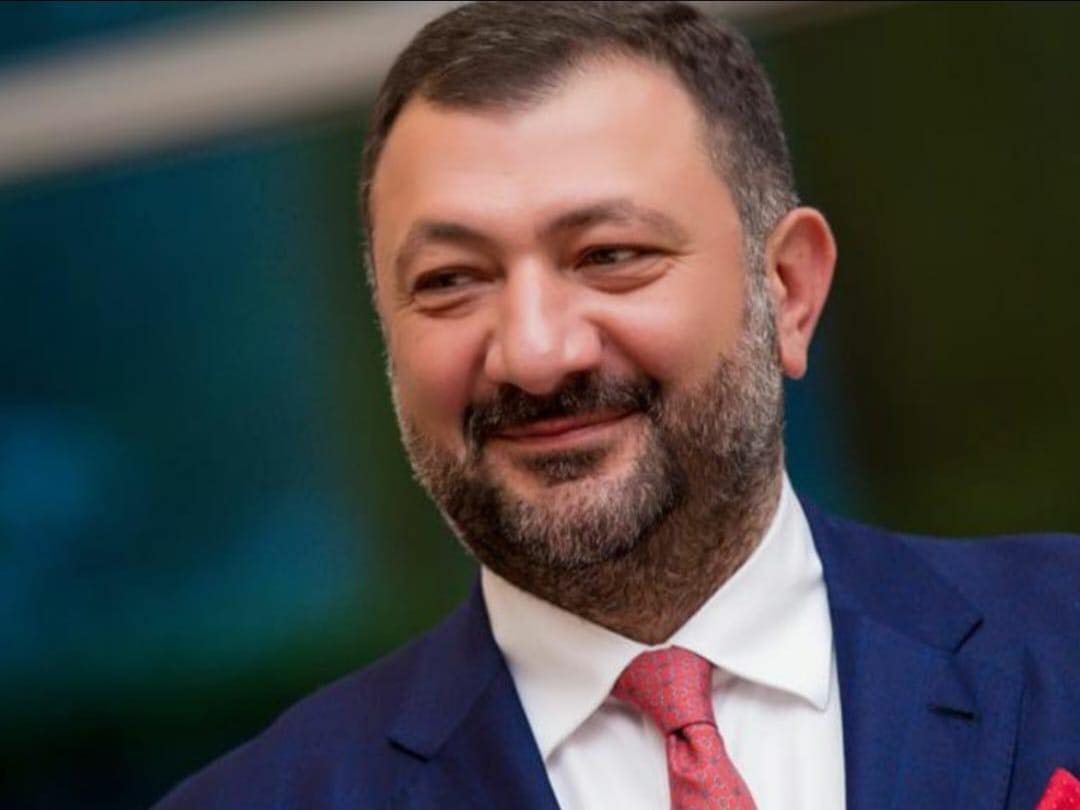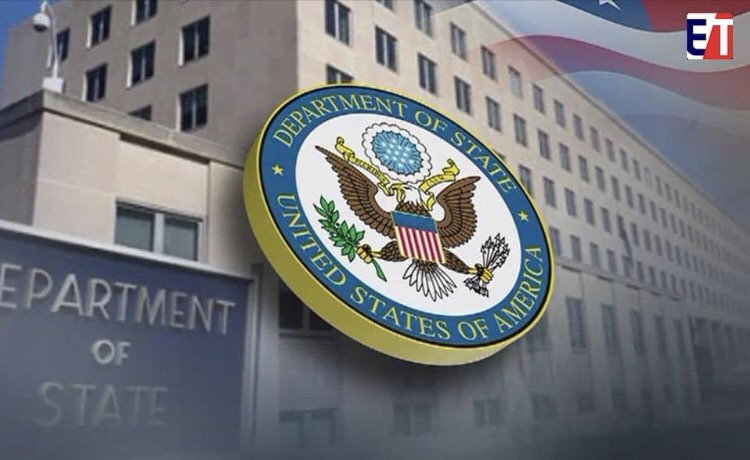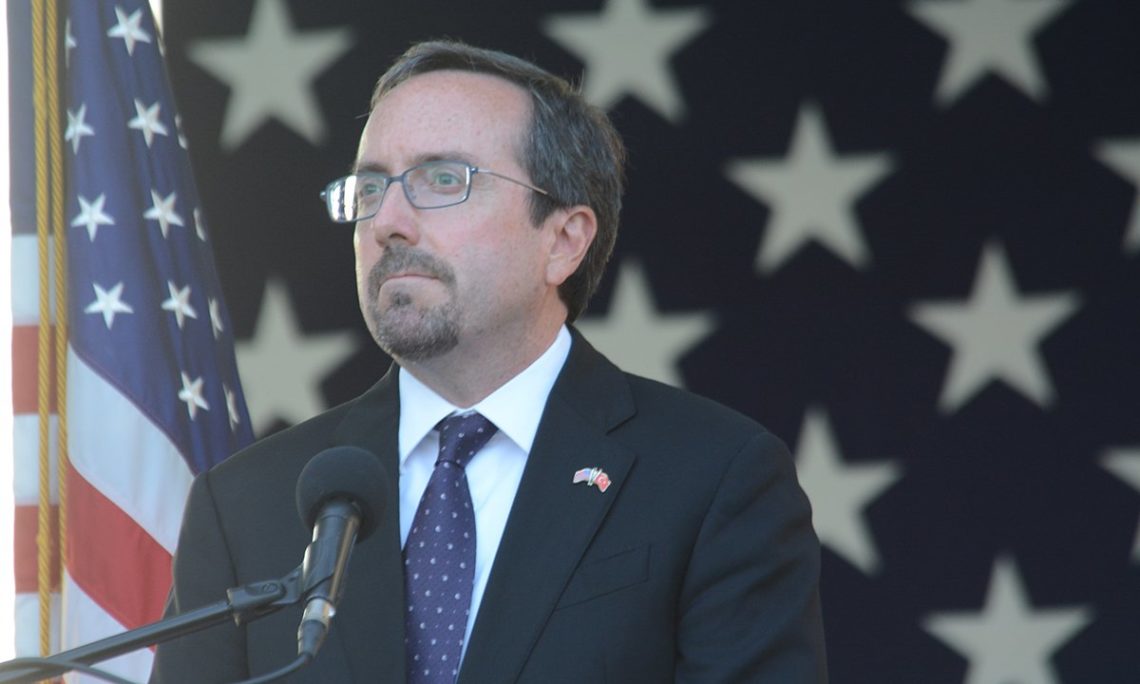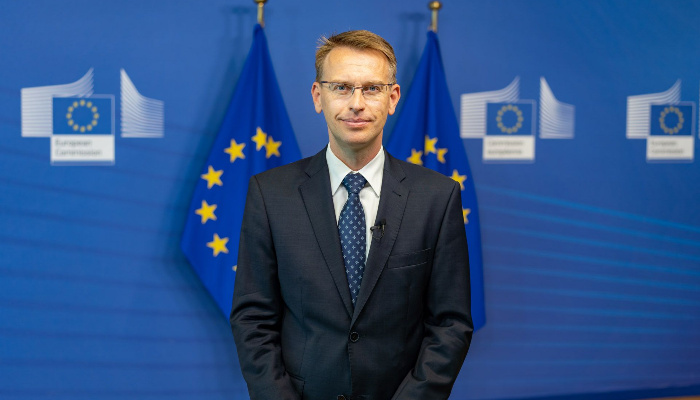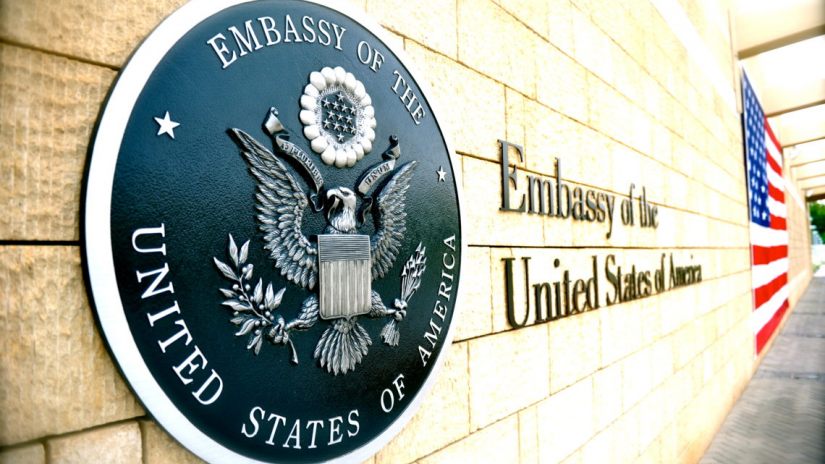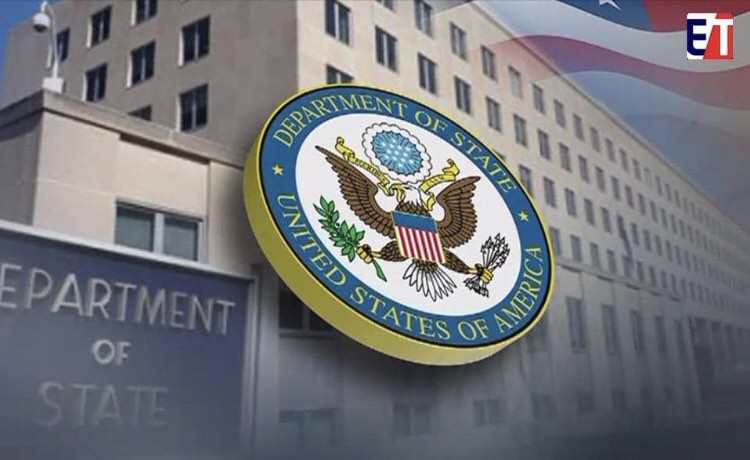News
Dimitri Abdushelishvili Signs Agreement with French Specialist on the “National Swimming Center” and Other Large-Scale Projects
europetime 2026-02-27 20:30The President of the Georgian National Federation of Aquatic Sports, Dimitri Abdushelishvili, has signed an agreement with French specialist Olivier Sangaria on the development of a swimming strategy for Georgia. The agreement on the swimming development strategy includes large-scale projects, among them the establishment of a “National Swimming Center,” which will operate under the Federation. Olivier Sangaria is a renowned swimming specialist and has coached multiple Olympic, World, and European champions. He is also known for his unique programs for swimmers, aimed at refining swimming techniques, retraining coaches, and promoting overall athletic development. The signing ceremony was attended by members of the Georgian National Federation of Aquatic Sports and representatives of the Federation’s Board.
UK sanctions Georgia’s Imedi and POSTV over ‘Russian disinformation’
europetime 2026-02-24 12:57The UK has sanctioned Georgian media outlets Imedi and POSTV for ‘involvement in Russian disinformation’. The UK imposed the same three sets of sanctions on both entities — ‘asset freeze, trust services sanctions, director disqualification sanctions’ — meaning that all assets or properties held by the companies in the UK will be frozen, it will become illegal for UK citizens to help create or manage trusts for the companies, and the individuals running the companies will be barred from running any other UK-based company. In total, the UK has now imposed sanctions on over 3,000 individuals, companies, and vessels under its Russia sanctions regime.
Antonio Silva, congratulates Dimitri Abdushelishvili on being elected as the President of the Georgian Aquatics Sports National Federation
europetime 2026-02-16 18:51The President of European Aquatics, Antonio Silva, congratulates Dimitri Abdushelishvili on being elected as the President of the Georgian Aquatics Sports National Federation. The letter reads: Dear Mr. Abushelishvili, Dear Colleagues of Georgian Aquatics, On behalf of the President of European Aquatics, Mr António Silva, I would like to extend our warmest congratulations on your election as President of the Georgian Aquatic Sports National Federation. Your appointment marks an important moment for Georgian Aquatics, and we are confident that under your leadership the Federation will continue to grow and strengthen its position within the European aquatic community. We would also like to take this opportunity to acknowledge and thank former President Aleksandre Nikolaishvili for the constructive cooperation and commitment demonstrated throughout his mandate. The collaboration between Georgian Aquatics and European Aquatics has been highly valued, and we look forward to building upon this positive foundation together with you.European Aquatics remains fully committed to supporting Georgian Aquatics across all disciplines, and we look forward to continued close cooperation in the years ahead." Dimitri Abdushelishvili is the new President of the Georgian Aquatics Sports Federation. ▪ For reference, Dimitri Abdushelishvili was born on June 18, 1973, in Tbilisi. ▪ He graduated from the Faculty of International Economics at Tbilisi State University. ▪ For a certain period, he worked at the National Bank of Georgia. ▪ He was one of the experienced and seasoned players of the 1973 generation of water polo, playing as a forward. He played in the national team. ▪ From the late 1990s, his career developed abroad. ▪ Dimitri Abdushelishvili is a patron, businessman, and veteran water polo player — he recently established a new water polo team, “Apollo,” which became the champion of Georgia in its very first year. He founded his own company in Central Asia and continues to work in the private sector to this day. His business activities cover the logistics field and include large-scale projects such as the Middle Corridor and the transit hub. He was one of the investors and a passionate supporter of the construction of Anaklia. After returning to Georgia, he laid the foundation for the construction of the Batumi port terminal, which became one of the key hubs in the direction of the Middle Corridor. He is the author of the idea and financial supporter of many nationally significant projects, such as the unique edition of The Knight in the Panther’s Skin, with the participation of the internationally renowned artist, Guji Amashumeli. The original version of this edition is preserved at the United Nations Headquarters. He is also a supporter of numerous patriotic and nationally important initiatives. ▪ He has a spouse and four children.
24 Countries Invoke OSCE Moscow Mechanism on Georgia
europetime 2026-01-29 18:24Twenty-four countries have invoked the OSCE’s Moscow Mechanism on January 29, to launch an expert mission on the deteriorating human rights situation in Georgia, according to a statement published on the UK government’s website. The countries that backed invoking the mechanism include Albania, Austria, Belgium, Bosnia and Herzegovina, Canada, Czechia, Denmark, Estonia, Finland, Germany, Ireland, Iceland, Latvia, Liechtenstein, Lithuania, Luxembourg, Moldova, Montenegro, the Netherlands, Norway, Slovenia, Ukraine, the United Kingdom, and Sweden. The Moscow Mechanism, part of the OSCE’s human dimension framework, allows participating countries to establish an expert mission to investigate serious human rights violations in any member country. It is administered by the OSCE’s Office for Democratic Institutions and Human Rights (ODIHR). This marks the 17th invocation of the mechanism since its establishment in 1991. The mechanism is meant “to establish a fact-finding mission to assess Georgia’s implementation of its OSCE commitments, with a particular focus on developments since spring 2024.” The move follows the earlier invocation of the Vienna Mechanism – another OSCE “Human Dimension” tool to monitor the implementation of human rights and democracy commitments by member states – against Georgia by 38 states in December 2024. At the time, the countries invited Georgia to provide concrete and substantive responses to a number of human rights concerns amid ongoing pro-EU protests. “We have followed closely and with increasing concern the human rights situation in Georgia. As an OSCE participating State, Georgia has undertaken to uphold human rights and fundamental freedoms. It has also recognised that respect for human rights and fundamental freedoms is an essential factor for the peace, justice and well-being necessary to ensure the development of friendly relations and co-operation among States. In December 2024, 38 participating States invoked the OSCE Vienna Mechanism, in order to express concern about developments in Georgia and to request more information. Georgia’s response at the time left unanswered questions about accountability for police brutality against protestors in December 2024 and January 2025. Indeed those acts were at that time assessed as “unlawful violence against citizens…that may amount to torture.” To this day no official has been held accountable for such violence. Moreover, questions persist about respect for the right to freedom of peaceful assembly, association, and freedom of expression. Since the invocation of the Vienna Mechanism, dozens more Georgians have been detained on politicised charges, including journalists and opposition leaders. Our delegations as well as others have repeatedly raised our concerns in the Permanent Council, believing the Council is an important forum to promote dialogue and consultations among participating States. However our concerns about implementation of shared human dimension commitments and international human rights obligations by the Georgian authorities have only increased. On 28 October the Georgian Parliament announced a lawsuit to ban leading opposition parties. Nine opposition leaders have since been indicted and some face up to fifteen years in prison if found guilty. Such a step represents a major escalation in the erosion of democratic norms in Georgia and is incompatible with OSCE principles and commitments. Our concerns include, but are not limited to: legislative reforms designed to supress dissenting voices and restrict space for civil society and independent media to operate; legal actions designed to ban opposition parties; election integrity, especially in the light of the local elections; active spreading of disinformation by media outlets affiliated to the ruling party; campaigns against diplomatic representatives; constraints on freedom of association, expression and the media; politically motivated arrests and prosecutions; misuse of the judicial system to enforce a system of repression; allegations of mistreatment of persons deprived of liberty; excessive violence and arbitrary detentions; as well as harassment and intimidation of opposition politicians, human rights defenders and journalists. Recalling that all participating States have committed to co-operative review of implementation of commitments in the field of the human dimension and in particular participating States’ agreement at Astana that “commitments undertaken in the field of the human dimension are matters of direct and legitimate concern to all participating States”, we invoke paragraph 12 of the 1991 Document of the Moscow meeting of the Conference on the Human Dimension of the then CSCE in order to establish a fact-finding mission to assess Georgia’s implementation of its OSCE commitments, with a particular focus on developments since spring[] 2024. We note Georgia’s response to questions raised in the 2024 Vienna Mechanism and urge Georgia to cooperate with and facilitate the work of the Mission, as per paragraph 6 of the Moscow Document. We recall that in accordance with paragraph 10 of the Moscow Document, one member of the Mission may be chosen by Georgia from the List of Experts for the Human Dimension Mechanism maintained by the Office for Democratic Institutions and Human Rights. The Mission should give an objective and unbiased report and recommendations, establishing the facts and providing recommendations and advice. It will be tasked, inter alia, to: Document recent developments in Georgia in respect of human rights and fundamental freedoms Assess the impact of these developments including for Georgian civil society, freedom of the media, the rule of law and independence of the judiciary, political pluralism and other structural components of a democratic society which underpin the OSCE’s comprehensive definition of security Provide recommendations on how to address matters of concern. Bearing in mind the ongoing Russian military presence in Georgia’s occupied breakaway regions of Abkhazia and South Ossetia, the Mission will confine its report to areas of Georgian territory under Tbilisi control. We encourage the Mission to apply a gender-sensitive approach to its assessment. We look forward to working with the OSCE’s Office for Democratic Institutions and Human Rights on arrangements for the Mission,” the joint statement reads. Under the OSCE’s human-dimension mechanisms, Georgia has a set period, typically 10 days, to respond to the request about inviting an expert mission. If Georgia declines or does not formally invite the mission, a group of at least six OSCE participating States can instead appoint a mission of independent rapporteurs to visit Georgia and produce a report, without Tbilisi’s agreement on the composition of that group. Should Georgia accept the fact-finding mission, it can participate in appointing three human rights experts from the pre-established roster.
US Embassy: Georgia is one of 8 partner nations chosen to participate in prestigious exercise Phoenix Express 2026
europetime 2026-01-27 0:36Georgia is participating in the international maritime exercise Phoenix Express 2026, the US Embassy in Georgia announced on social media. “Georgia is one of 8 partner nations chosen to participate in this prestigious exercise,” the Embassy wrote. The Georgian Border Police reported that the exercise was held in Tunis, Republic of Tunisia, and lasted four days. During the training, personnel from the Coast Guard Department of the Georgian Border Police carried out their assigned tasks at the Training Management Center. Phoenix Express is an international maritime security exercise aimed at strengthening cooperation, interoperability, and maritime safety among partner nations.
The Trump administration indefinitely suspended immigrant visa processing from 75 countries
europetime 2026-01-14 19:22The Trump administration has indefinitely suspended immigrant visa processing for people from 75 countries, marking one of its most expansive efforts yet to restrict legal pathways to the United States. The freeze, which takes effect on 21 January, targets applicants officials deem likely to become a “public charge” – people who they believe may rely on government benefits for basic needs. According to a Wednesday state department cable obtained by the Guardian, the sweeping list cuts across every major region of the world, spanning countries in Africa, Asia, Latin America, the Middle East and eastern Europe. According to the cable, exceptions include dual nationals with a valid passport for a country not on the list or if the applicant is able to demonstrate their travel would service an “America First” national interest. If a visa has already been approved but the visa has not been printed the consular officer “must refuse the case”. Here is the full list, which includes war-torn nations, US allies, and countries with long-standing migration ties to America: Afghanistan Albania Algeria Antigua and Barbuda Armenia Azerbaijan Bahamas Bangladesh Barbados Belarus Belize Bhutan Bosnia and Herzegovina Brazil Myanmar Cambodia Cameroon Cape Verde Colombia Côte d’Ivoire Cuba Democratic Republic of the Congo Dominica Egypt Eritrea Ethiopia Fiji The Gambia Georgia Ghana Grenada Guatemala Guinea Haiti Iran Iraq Jamaica Jordan Kazakhstan Kosovo Kuwait Kyrgyzstan Laos Lebanon Liberia Libya North Macedonia Moldova Mongolia Montenegro Morocco Nepal Nicaragua Nigeria Pakistan Republic of the Congo Russia Rwanda St Kitts and Nevis St Lucia St Vincent and the Grenadines Senegal Sierra Leone Somalia South Sudan Sudan Syria Tanzania Thailand Togo Tunisia Uganda Uruguay Uzbekistan Yemen
Ombudsman Shares Negative Evaluation by ODIHR on ‘Foreign Agents’ Laws
europetime 2023-08-09 13:05The OSCE Office for Democratic Institutions and Human Rights (ODIHR) has produced a legal report concerning the “Foreign Agents” draft laws introduced in the Georgian Parliament in February 2023. The report was prepared in response to requests submitted by the Public Defender on February 24 and March 6. The assessment of these initiatives by ODIHR was negative, according to a statement from the Ombudsman issued on August 9. The Ombudsman’s statement notes that following large social protests, the deliberation of the aforementioned draft laws within the Georgian Parliament was halted. Specifically, one of the draft laws was withdrawn, while the other was discarded during the second reading. Despite these developments, and due to the significance of the matter at hand, OSCE/ODIHR continued to analyze the issue and presented an extensive overview of human rights standards along with associated recommendations. The document primarily concentrates on the adverse impacts of the draft laws on fundamental human rights. These rights include freedom of association, freedom of expression, the right to privacy, participation in public affairs, and protection from discrimination. “The Note also reviews the US and Australian legislations. It is emphasized that they are fundamentally different cases, have an entirely different goal and scale, which is why they do not represent relevant comparative examples in the Georgian context,” – reads the statement by the Public Defender of Georgia. OSCE/ODIHR’s Legal Note on “Foreign Agents” Draft-Laws The “Note on Legislative Initiatives on Transparency and Regulation of Associations Funded from Abroad or so-called ‘Foreign Agents Laws’ and Similar Legislation and their Compliance with International Human Rights Standards” opens by highlighting that the fundamental right to freedom of association is integral to a vibrant and participatory democracy and is intertwined with various human rights. Essential to this right is access to diverse funding sources, including international and foreign funding. Nevertheless, it points out that certain nations regard foreign funding with suspicion. The Notes notes that “overall, the aim of so-called “foreign agents laws” or similar legislation is generally to seek to increase the scrutiny of such funding and of the activities of the recipient associations by introducing new obligations for such associations such as separate and generally burdensome registration, labelling, reporting, accounting and publication/disclosure requirements”, etc. The Note stresses that these regulations often fall short of meeting the rigorous criteria established by international human rights law. These criteria dictate that constraints on freedom of association must be lawful, pursue legitimate objectives, demonstrate proportionality and necessity within a democratic society, and refrain from discrimination. Additionally, the Note draws upon comparative viewpoints, regional legal precedents, and authoritative recommendations to offer supplementary insight on this issue. The assessment finds that the rationale for implementing legislative initiatives related to “foreign agents” laws often lacks evidence of a tangible, current, or serious threat to national interests or democracy. Adequate risk-based evaluations of the civil society sector, confirming NGO involvement in criminal activities, are frequently absent. Moreover, national justifications for such legislative initiatives typically fall short of being “relevant and sufficient.” They fail to demonstrate insufficiencies in existing legal frameworks and the appropriateness of proposed measures. “An abstract assumption that all funds originating from abroad constitute a potential threat to national interests is incompatible with international human rights standards,” – reads the Note. It is also noted that lack of proper reasoning for differential treatment based on funding’s foreign origin suggests potential discrimination. Regulations on associations are often stricter than those on business entities, without clear explanations. In addition, the report highlights that “the legal drafters usually fail to show that they have assessed the potential negative impact of a legislation on associations or considered other legal alternatives and selected the least intrusive measures with regard to the protection of fundamental rights,” adding that aiming for “transparency” or “publicity” of association funding isn’t inherently a legitimate aim, though it could be under specific circumstances related to public order or preventing crimes. The Note emphasizes that objectives like countering money laundering or terrorism financing don’t automatically justify new reporting obligations for all associations. References to foreign laws like the United States Foreign Agents Registration Act (FARA) and Australian Foreign Influence Transparency Scheme Act (FITS) aren’t suitable comparisons for justifying initiatives targeting foreign-funded associations. The report also notes that “foreign agents” laws introduce control measures, such as unscheduled inspections without clear legal grounds or court authorization. In certain cases, these laws even impose fines, imprisonment, or association dissolution as consequences for violations that are seen as disproportionate. These laws frequently violate principles of equal treatment and non-discrimination, indirectly affecting associations that advocate minority viewpoints. In practical terms, “foreign agents” laws run the risk of discrediting valid organizations, fostering mistrust, fear, and hostility, thus complicating their operational activities.
Occupied Abkazia Transfers Bichvinta Dacha to Russia
europetime 2023-12-27 13:02Australia legalises psychedelics for mental health
europetime 2023-07-02 19:49Statement of news agency Europetime
europetime 2023-02-09 20:5224 Countries Invoke OSCE Moscow Mechanism on Georgia
europetime 2026-01-29 18:24Major General Eray Üngüder Conducted Official Visit to Georgia
europetime 2025-12-23 17:23Apple to integrate Siri with WhatsApp, Uber, and other apps: What users can expect
Apple is testing an updated version of its Siri voice assistant with deep integration into popular third-party apps such as WhatsApp, Uber, AllTrails, Threads, Temu, Amazon, YouTube, and Facebook. This was reported by Bloomberg insider Mark Gurman in an article for MacRumors. The new Siri, powered by Apple Intelligence and an improved App Intents system, promises revolutionary voice control — but its launch is planned only for spring 2026. Here’s what users can expect, what limitations may arise, and how this will affect the Apple ecosystem.
economic
US hits top Russian oil companies Rosneft and Lukoil with sanctions
europetime 2025-10-23 1:22U.S. President Donald Trump on Wednesday imposed Ukraine-related sanctions on Russia for the first time in his second term, targeting oil companies Lukoil and Rosneft as his frustration grows with Russian President Vladimir Putin over the war. The U.S. Treasury Department said it was prepared to take further action as it called on Moscow to agree immediately to a ceasefire in Russia's war in Ukraine, which began in February. Trump's measure on Wednesday followed Britain's sanctioning of Rosneft and Lukoil last week. Analysts said the measures were a big step but long overdue. "This can't just be one and done," said Edward Fishman, a former U.S. official who is now a senior research scholar at Columbia University. He said the question will be whether the U.S. now threatens sanctions on anyone doing business with Rosneft and Lukoil. "Given President Putin’s refusal to end this senseless war, Treasury is sanctioning Russia’s two largest oil companies that fund the Kremlin’s war machine," Treasury Secretary Scott Bessent said in a statement. "We encourage our allies to join us in and adhere to these sanctions." The sanctions are a major policy shift for Trump, who had not put sanctions on Russia over the war and instead relied on trade measures. Trump imposed additional 25% tariffs on goods from India in retaliation for it purchasing discounted Russian oil. The U.S. has not imposed the tariffs on China, another major buyer of Russian oil. A $60 price cap on Russian oil imposed by Western countries after Russia's invasion has shifted Russia's oil customers in recent years from Europe to Asia.
Interview
Analytics
Georgia will become a NATO member, when allies assess that it is prepared to fulfill the obligations that come with membership, John Bass says
Ambassador John Bass, Under Secretary of State for Political Affairs, answered the question by Europetime. Q - „At the NATO summit held in Bucharest in 2008, allies decided that Georgia would join NATO. The decision was reaffirmed at the subsequent summits. During your tenure as U.S. ambassador to Georgia, we have repeatedly heard your comments regarding the integration of Georgia into NATO. How do your earlier assumptions and expectations align with the present dynamics and process of the country’s integration into the Alliance?” A - „I would first say that for many of us who spent time in Georgia or working with Georgians, particularly in the aftermath of the conflict in 2008 in which, yet again, Russia was attempting to determine how a neighboring country should live, dictate whether or not that country should be free to choose its own security relationships with, in this case, NATO – having been there in that period, it’s been very disturbing to see the evolution in recent years and particularly in recent months of the Georgian Dream government. And if someone were to ask straight up, as I think is implicit in the question, when will Georgia become a member of NATO, the answer is that Georgia will become a member, I think, when allies assess that it is prepared to fulfill the obligations that come with membership, including upholding principles – core principles of democratic governance, including the fundamental principle that people are free to choose their own leaders. And unfortunately, since I was ambassador in Georgia, we have not seen Georgia progress to meeting those objectives. And unfortunately, we’ve seen quite a bit of work, quite a bit of retrograde, if you will. And as the U.S. ambassador who worked quite hard to ensure that there were the conditions in place to allow Georgian Dream to compete fairly in the parliamentary elections of 2012, it is deeply disturbing to see that same group now eroding the foundations of democratic governance and society. And as a final observation, I would say it is both deeply disturbing and saddening to see the aspirations and dreams of an entire society being held hostage to the grievances of one individual: Bidzina Ivanishvili.“ John Bass was confirmed by the U.S. Senate on December 17, 2021, as the Under Secretary for Management. The Secretary of State designated John Bass as Acting Under Secretary for Political Affairs on March 23, 2024. A career Senior Foreign Service officer, he served as Senior Advisor at the Foreign Service Institute from 2020-2021, U.S. Ambassador to Afghanistan 2017-2020, U.S. Ambassador to Turkey from 2014 to 2017, Executive Secretary of the State Department from 2012 to 2014, and U.S. Ambassador to Georgia from 2009 to 2012. He began his diplomatic career in 1988 and has also served in positions in U.S. missions in Iraq, Italy, Belgium, and Chad.
The United States is already implementing the Black Sea Strategy, the state department says
Europetime receives confirmation from the US State Department that the Biden administration has already begun implementing a comprehensive strategy for the Black Sea region. According to Europetime, the strategy is centered on the goal of the US administration and calls for more political and diplomatic engagement as well as other significant actions. “The United States is already implementing this strategy, and we will continue to coordinate closely with allies, partners, and civil society to advance this strategy in pursuit of shared objectives. The timeline for implementation will depend on the goal or activity. Some of our objectives, such as increased political engagement and messaging are ongoing; likewise, support for defense modernization of our Allies and partners has already begun. Our strategy provides a whole-of-government vision and framework through which we can continue current efforts, develop future initiatives and make funding requests to support implementation. What is the Black Sea Strategy? In the FY2023 National Defense Authorization Act, the NSC was required by the U.S. Congress to develop and implement a strategy to support a Black Sea region that is secure, prosperous, interconnected, and free from malign influence, economic coercion, and threats to territorial integrity. The NSC delegated the drafting of the report to the State Department in coordination with interagency. The Black Sea Strategy encourages agencies across the United States government to work with allies and partners bilaterally and multilaterally to increase political and diplomatic engagement, ensure regional security, boost economic cooperation, provide clean and secure energy, strengthen rule of law, promote respect for human rights, combat corruption, and counter disinformation. Through this Strategy, the United States is strengthening our partnerships to promote peace and prosperity for all. The Strategy also outlines our approach to addressing the immediate and long-term repercussions brought upon the region by Russia’s brutal full-scale invasion of Ukraine,“ a State Department spokesperson told Europetime.
The US is exploring potential investment opportunities in infrastructure to advance strategic projects in the Trans-Caspian Corridor
The US is exploring potential investment opportunities in infrastructure to advance strategic projects in the Trans-Caspian Corridor. In response to a question from Europetime, the State Department states that in order to actually advance important projects in the Trans-Caspian Corridor, the „US is currently evaluating potential areas for infrastructure investment.“ „Generally speaking, we welcome and encourage multilateral efforts in support of regional connectivity in Central Asia and South Caucasus westward to Europe. Such efforts contribute to the creation of a more secure, resilient, and prosperous region. In close coordination with our European counterparts, the United States continues to support initiatives that enhance connectivity and diversify the economies of our Central Asian partners, including the EU Global Gateway Investors Forum, the Commercial Law Development Program’s Trans-Caspian Trade Route Coordination Platform, and USAID’s Trade Central Asia. Through the C5+1 diplomatic platform, we continue to promote regional cooperation and dialogue that helps the region address shared security and economic challenges while reaffirming the autonomy and sovereignty of our Central Asian partners. During the inaugural C5+1 Presidential Summit in September 2023, President Biden affirmed continued U.S. support through PGI to scale infrastructure investment and accelerate the economic development, energy security, and connectivity of the Trans-Caspian Corridor. Through PGI, the United States is currently evaluating potential areas for infrastructure investment where the U.S. Government could contribute project advisory technical assistance, project preparation, and/or financing to tangibly move forward strategic projects in the Trans-Caspian Corridor,“ a State Department spokesperson told Europetime. Bulgarian Ambassador: After an agreement on the resumption of ferry traffic is signed, more concrete and cooperative action is needed
EEAS Spokesperson: Together with our US colleagues, we have been working on how to address the impact of Russia’s war of aggression against Ukraine across the Black Sea region
Peter Stano, lead spokesperson for the foreign affairs and security policy of the European Union, said that the EU and US share common interests in the Black Sea region. According to him, they cooperate to support partners in the region to bolster their resilience to increasing hybrid and cyber challenges as well. „Together with our US colleagues, we have been working on how to address the impact of Russia’s war of aggression against Ukraine across the Black Sea region - both in the short and the long run. We have focused on supporting Ukraine, but also helping the region address the wider fallout of Russia’s war. We have done this in many fora, including the EU-US Security and Defence Dialogue, the UN, the G7, etc. The EU and US share common interests in the region to: (1) increase coordination with partners; (2) deepen economic ties; (3) strengthen energy security; (4) support efforts to bolster democratic resilience, including fighting false narratives and Russian state-controlled propaganda, in accordance with our shared values; (5) support partners in the region to bolster their resilience to increasing hybrid and cyber challenges. We cooperate to help accelerating Ukrainian grain exports, notably after Russia’s unilateral withdrawal from the UN-Türkiye-brokered Black Sea Grain Initiative. The Leaders have been unequivocal in their Joint statement following the US-EU Summit on 20th October 2023 in Washington D.C. We continue to pursue the Solidarity Lanes objectives to increase efficiency and reduce transport costs. The US collaboration with the European partners in Constanta, Romania’s largest port city on the Black Sea coast, is a good example of that. The EU has deployed a Multipurpose Maritime Operation in the Black Sea, involving the EU Agencies with Coast Guard functions (Frontex, the European Maritime Safety Agency, European Fisheries Control Agency), riparian EU Member States, and also other EU Member States. Georgian officials were invited to observe various activities in this context. Furthermore, the EU has supported capacity building, including for Georgia, through the Black and Caspian Sea I project and its current successor Black and Caspian Seas II, implemented by the European Maritime Safety Agency. Looking ahead, the EU is working on the 4th implementation report of the EU Black Sea Synergy. This stock-tacking exercise will also help us identify key trends and findings, which could factor into future EU thinking on the Black Sea cooperation. At its core there are issues of connectivity, energy, digital transformation, blue economy, environment, fisheries and maritime security, resilience and the protection of critical infrastructure,“Stano told Europetime. The US sees Georgia as a critical security partner for the Black Sea, James O’Brien says
US Embassy: The U.S. government has and will continue to expose Russia’s efforts to undermine democratic elections around the world
EXCLUSIVE The United States has become aware of a trend in Russia’s efforts to undermine democratic processes globally, according to the US Embassy in Georgia. Europetime was told in the embassy that the U.S. government has and will continue to expose Russia’s efforts to undermine democratic elections around the world. The United States on Friday released a U.S. intelligence assessment sent to more than 100 countries that found Moscow is using spies, social media and Russian state-run media to erode public faith in the integrity of democratic elections worldwide. The assessment was sent in a State Department cable dated Wednesday to more than 100 U.S. embassies in the Americas, Europe, Asia and Africa for distribution to their host governments. Europetime was curious as to whether there has been communication over the aforementioned matter with the Georgian side via the embassy. “The United States has become aware of a trend in Russia’s efforts to undermine democratic processes globally. It is well-documented that Russia seeks to influence the outcomes of democratic elections globally in favor of specific candidates and political parties. In response, the U.S. State Department has briefed more than 100 democracies on these Russian efforts and steps we can take in response. We also are speaking openly about these findings. The U.S. government has and will continue to expose Russia’s efforts to undermine democratic elections around the world. We are seeking to increase public awareness of and resilience to these Russian activities. It is critical that we work together, as democracies, to counter these Russian efforts. In our cable to the governments invited to the Summit for Democracy, we notified each country, privately, on whether we assess Russia had sought to degrade public confidence in elections held in their country. We are keeping these briefings confidential, even as we act transparently by sharing our general findings with the public,“ the U.S. Embassy said.
State Department: Russia is seeking to undermine democracies from within, the IC found that this Russian activity is global in scope
Russia is seeking to undermine democracies from within. The IC found that this Russian activity is global in scope, a State Department spokesperson told Europetime. „We have long known that Russia is seeking to subvert democratic processes around the world, and we are raising awareness that, as part of these efforts, Russia is pursuing operations to degrade public confidence in the integrity of elections themselves. To better understand this threat, the U.S. Intelligence Community undertook a review of Russian operations to undermine public confidence in democratic elections that took place between January 2020 and December 2022. The IC found that this Russian activity is global in scope. Russia is seeking to undermine democracies from within. In response, the U.S. State Department has briefed more than 100 democracies on these Russian efforts and steps we can take in response. We also are speaking openly about these findings. The U.S. government has and will continue to expose Russia’s efforts to undermine democratic elections around the world. We also will continue to work with other democracies to further these efforts. We are seeking to increase public awareness of and resilience to these Russian activities. „We will continue to work with our fellow democracies to advance these actions, including through new policy initiatives – like this multi-part exposure campaign,“ - a State Department spokesperson told Europetime. The United States on Friday released a U.S. intelligence assessment sent to more than 100 countries that found Moscow is using spies, social media and Russian state-run media to erode public faith in the integrity of democratic elections worldwide. The assessment was sent in a State Department cable dated Wednesday to more than 100 U.S. embassies in the Americas, Europe, Asia and Africa for distribution to their host governments. US Embassy: The U.S. government has and will continue to expose Russia’s efforts to undermine democratic elections around the world


